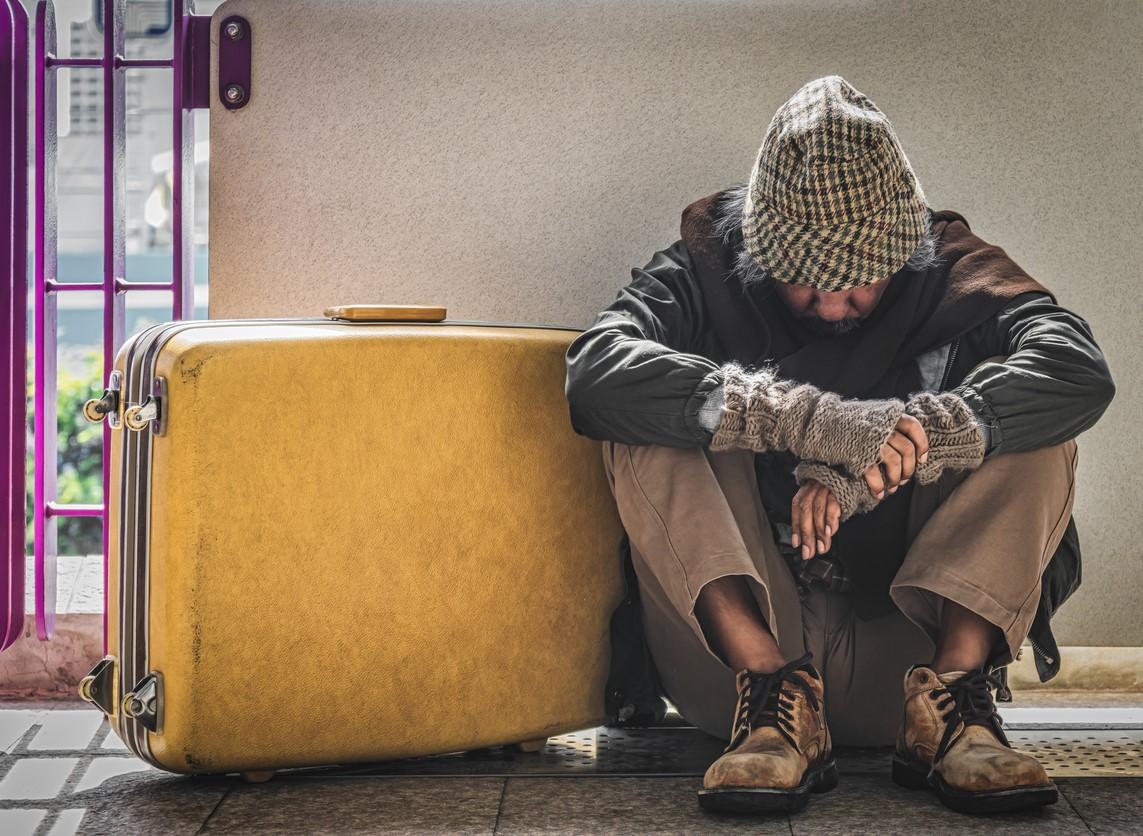People experiencing homelessness (PEH) in Chicago were 2.5 times less likely to have a COVID-19 infection if they were housed in individual hotel rooms along with medical and social support than if they stayed in a city shelter, according to an observational study yesterday in JAMA Network Open.
A team of University of Chicago, Lawndale Christian Health Center, and Chicago Department of Public Health researchers studied infection rates, blood pressures, and hemoglobin A1c of 259 PEH recruited from 16 shelters and housed in hotel rooms leased by the City of Chicago from Apr 2 to Sep 3, 2020. Their results were compared with those of people staying in shelters, which the authors noted may house as many as 400 people in open rooms.
Hemoglobin A1c, a measure of average blood sugar levels over the previous 3 months, is used to diagnose prediabetes and diabetes.
To be eligible for individual rooms, participants had to be at least 60 years old, 55 years old with a high-risk chronic illness, or younger than 35 with any high-risk underlying medical condition. The healthcare workers monitored hotel residents daily for COVID-19 symptoms and provided regular SARS-CoV-2 testing and management of chronic conditions. Onsite treatment of mental illnesses and substance use disorders, as well as other social services and meal delivery, were also provided.
For the first month of the study, under state lockdown orders, the hotel residents were largely confined to their rooms but later were allowed to leave to run necessary errands, smoke, or take part in supervised activities.
Improved blood pressure, hemoglobin A1c
There were 54.7 COVID-19 cases per 1,000 people in the hotel group, compared with 137.1 per 1,000 people in homeless shelters. Relative to baseline, adjusted change in systolic blood pressure (top number of a reading) among the hotel group was 5.7 points lower, and hemoglobin A1c was 1.4% lower.
Of the 259 hotel residents, 4.2% were hospitalized owing to severe COVID-19, but none died. Slightly over 28% were started on new psychiatric drugs, and 10.1% began treatment for opiate use disorder. About half of participants (51%) were later placed in permanent or transitional housing.
Of the 259 participants, 40.2% were 65 years and older, 73.4% were men, 71.4% were Black, and 18.9% were White. Common underlying conditions included high blood pressure, diabetes, obesity, impaired immunity, chronic respiratory conditions, and mental illness.
Median stay at the hotel was 59 days. During the study, 16,116 daily healthcare visits were provided, 60.9% of which were for serious medical conditions.
Averting emergency department visits
In a University of Chicago Medical Center news release, coauthor Elizabeth Tung, MD, said the study has important public health implications. "When you think about how much time and money is spent every time someone ends up in the ER [emergency room] because they're experiencing homelessness and can't take care of their medical needs — it's more expensive, it's worse for the patient, and you end up with terrible outcomes," she said. "These data show us that a medical housing approach could help."
The researchers noted that PEH are at increased risk of COVID-19 because they often live in congregate settings such as shelters, have limited access to personal protective equipment, and are more likely to have high-risk chronic diseases.
"These findings suggest that with appropriate wraparound supports (ie, multisector services to address complex needs), such housing interventions may reduce the risk of SARS-CoV-2 infection, improve noncommunicable disease control, and provide a pathway to permanent housing," they wrote.
The authors called for flexible, integrated, and sustained funding sources at the national, state, and local levels to enable the purchase, renovation, and improvement of new and existing shelters.
"Support is also needed to fund initiatives that proactively identify PEH with high-risk medical and behavioral health needs, and provide intensive, whole-person services to stabilize their conditions and facilitate a successful transition to permanent supportive housing," they wrote. "This model is not only relevant for the pandemic era, but is a critical piece to addressing the heterogeneous needs of PEH across the US."






















